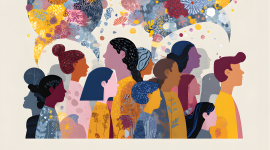Promoting Decent Work and the Care Economy

Photo © ILO
Promoting Decent Work and the Care Economy
27 avril–22 mai 2026
Le cours est disponible en English
Présentation du cours
Gender inequalities in the labour market and the imbalance between women and men in unpaid care work have long been pressing issues. Societies and economies rely heavily on both unpaid and paid care work, which is essential for sustaining human, social, and economic development. This situation underscores the urgent need to address the unequal distribution of unpaid care work among families, communities, the market, and the State. Investing in transformative care policies and quality care jobs benefits all workers, care recipients, businesses, societies, and the planet. Investing in care can create decent jobs and promote gender equality. Through this capacity-development programme, participants will explore how to successfully promote decent work in the care economy and enable a more balanced sharing of care responsibilities. The course includes live virtual sessions with international experts and self-guided online modules, covering strategies and tools for identifying transformative policies in care work, macroeconomics, social protection, labour, and migration. The programme has been collaboratively designed by the ITCILO and the ILO-Gender, Equality, Diversity, and Inclusion Branch, and will feature a broad range of experts. The complete training programme will last about 20 hours, spread over 4 weeks.
Groupes cibles
This interactive course is designed for ILO constituents, Representatives from Ministries of Labour, Gender Equality and Social Policies fields, Social partners, academics, Equal opportunities Units, Associations of domestic workers, long-term care workers, nursing personnel, and persons interested in care work and the care economy.
What topics does this course cover?
In this learning journey, you will be taken through four modules. Main topics include:
- Key concepts, definitions and approaches to the care economy and care policies;
- ILO’s policy framework for decent work in care work including the 5 Rs: recognise, reduce, redistribute, reward and represent;
- An overview of policies, international labour standards, tools, measures and good practices to position care work at the core of a future with decent work and intersectional gender equality.
What will I learn?
In particular, this course will allow participants to:
- Have a better understanding about the care economy, the centrality of care work and care policies and their value for societies and economies;
- Recognise the main concepts of the care economy and its importance for decent work, gender equality and an inclusive socioeconomic development through policies and international labour standards;
- Get familiar with strategies to promote transformative policies so that care work is at the core of a future with decent work and gender equality.
What will I be able to do?
ANALYSE CARE ECONOMY’S PRINCIPLES. FEATURES AND MAIN CHALLENGES BY UNDERSTANDING:
- The key concepts and definitions on the care economy, care work and care policies.
- ILO’s 5R Framework for Decent Work.
IDENTIFY AND ASSESS:
- Transformative policies in care work, macroeconomics, social protection, labour, migration, health, education and domestic work.
- Existing gaps between measures / tools for care workers/migrant care workers and ILO international labour standards promoting decent work.
- Care policies in line with ILO international labour standards to enable a more balanced sharing of family responsibilities.
PROMOTE AND COMMUNICATE ON:
- Decent work for care workers.
- Invest in care policies.
- Good practices that support representation and social dialogue in care work.
Why
Investing in care is key for the recovery of economies. Through this course, you will:
- Engage and network with other constituents and international experts on how to promote good practices and actions in care work.
- Master key care economy concepts, ILO’s framework (and its implementation), international labour standards, tools and good practices.
- Promote care work and policies for a future with decent work and intersectional gender equality.
Who?
This interactive course is designed for ILO’s constituents, as well as persons directly involved in care work, social dialogue and conciliation of working and private life, representatives from Ministries of Labour, Gender Equality and Social Policies fields, social partners, academics, Equal opportunities Units, Associations of domestic workers, long-term care workers, nursing personnel, and persons interested in care work and the care economy in general.
Applications
Applications should be submitted through the online application form: https://oarf2.itcilo.org/DST/A9718011/en


